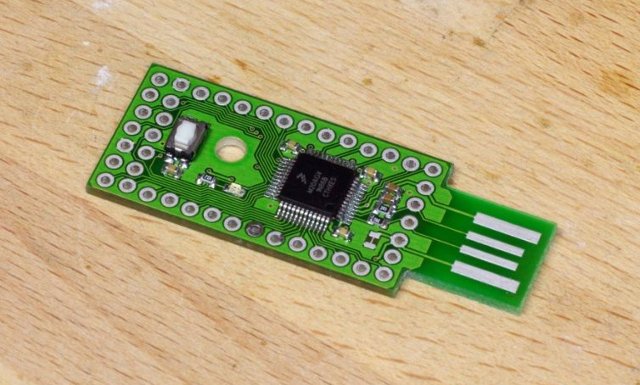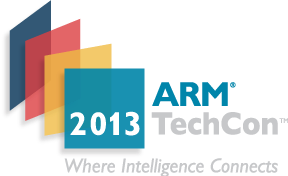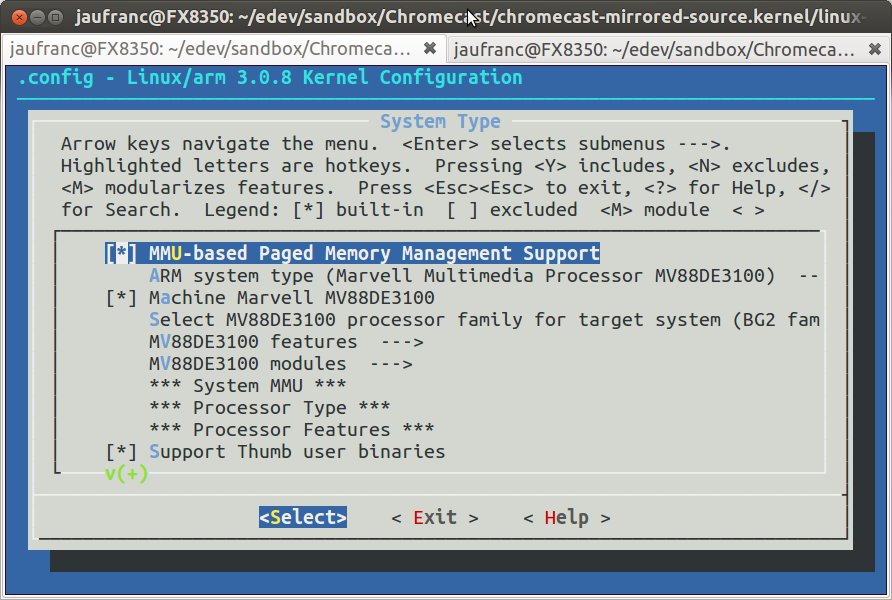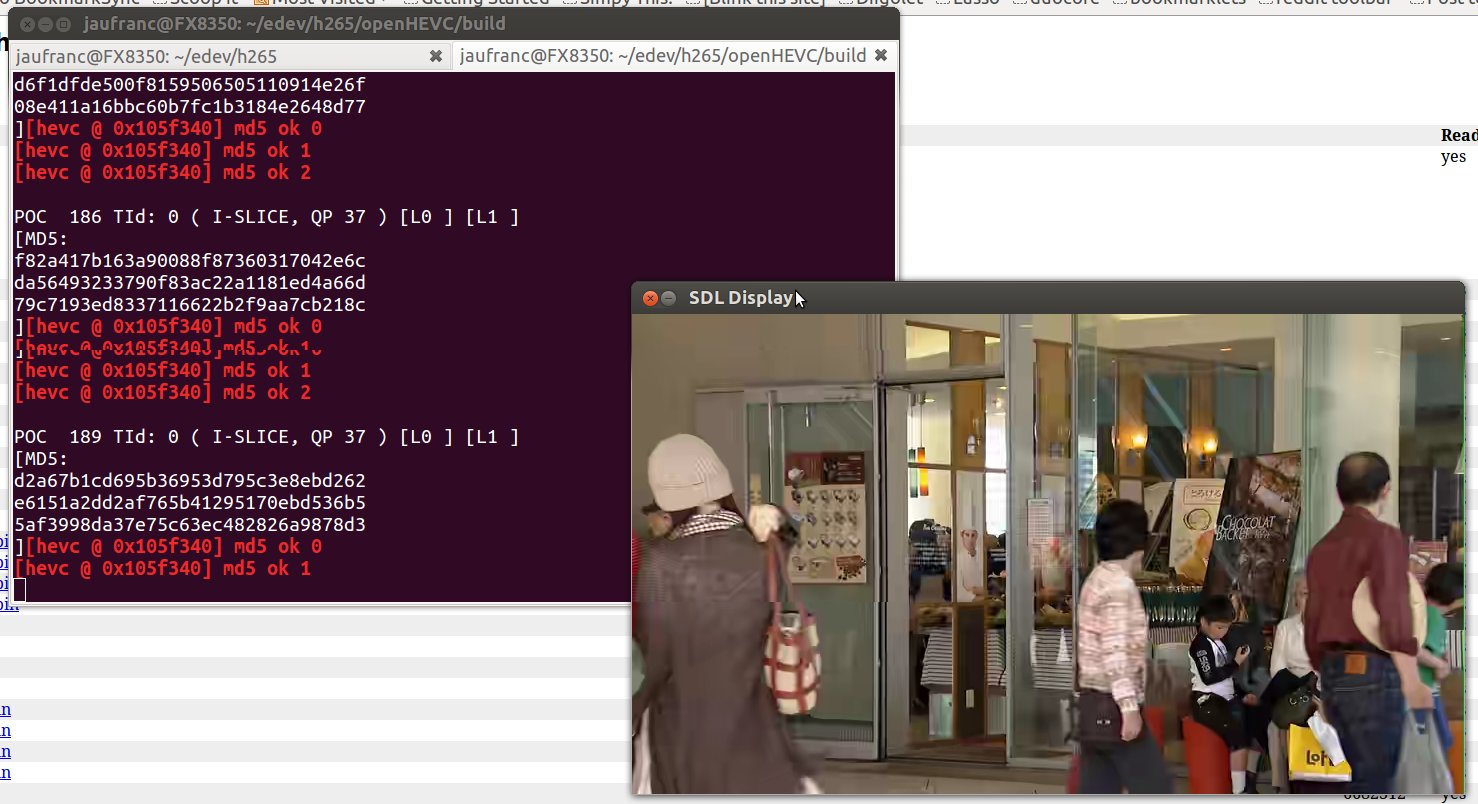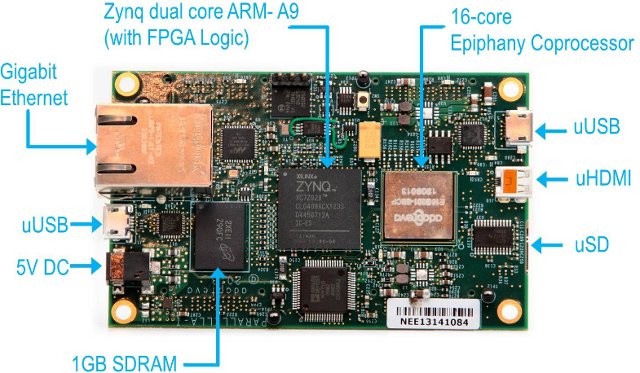MC HCK (pronounced McHack) is a tiny and cheap development board powered by Freescale K20 MCU (ARM Cortex M4) that can be easily programmed via USB. The board has been designed with KiCad, is fully open source hardware, and it’s supposed to cost as low as $5. The only problem, or main advantage, depending on how you look at it, is that it’s not available for sale (yet), but instead you’ll need to make it yourself. The actual cost of doing so will be well over $5 (About $35), but the BoM cost is about $5, and you can make 5 boards for this price, or about $7 per board. The detailed steps are explained on McHck blog, but they can summarized as follows: Order 10 PCB using the gerber files via services such as Seeedstudio or Iteadstudio Order 5 free samples of Freescale K20 MCU. Select MK20DX128VLF5 part, and […]
LinuxCon North America 2013 Schedule
LinuxCon (North America) 2013 will take place on September 16 – 18, 2013 in New Orleans, LA. The event will be co-located with several other conferences: the Linux Plumbers Conference, the Xen Project User Summit, the OpenDaylight Mini-Summit, the Gluster Workshop 2013, the UEFI Plugfest, the Linux Wireless Summit, the Linux Security Summit, and CloudOpen 2013. LinuxCon consists of 3 days of keynotes, and legal, operations, and developers related sessions as well as tutorials and workshops. There will be around 150 sessions and keynotes during those 3 days. I’ve gone through developer sessions and selected one for each time period. Monday, September 16 10:35 – 11:25 – UEFI and Linux by Kirk Bresniker, HP UEFI has become ubiquitous on the PC client systems and is coming up on servers and ARM-based systems, it is becoming the converged firmware infrastructure. UEFI Secure Boot feature has attracted a lot of attention from […]
ARM TechCon 2013 Schedule – ARM Servers, Internet of Things, Multicore, Hardware and Software Optimization and More
ARM Technology Conference (TechCon) 2013 will take place on October 29 – 31, 2013, in Santa Clara, and the detailed schedule for the event has just been made available. In the previous years, the conference was divided into Chip Designs day (1 day), and the other 2 days were reserved for Software & System Design, but this year it does not appear to be the case. Whether you’ll be able to attend the event or not, it’s worth having a look at what will be discussed there in order to have a better understanding of what will be the key ARM developments in the near future in terms of hardware and software. There will be around 90 sessions categorized into 15 tracks: Accelerating Hardware Development – This track explores the resources, tools, and techniques that designers can employ to quickly bring hardware to market. Topics include multicore design, ARM IP, […]
BeagleBone GamingCape Transforms your BeagleBone Black into an Hand-held Gaming Console
The BeagleBone GamingCape is an open source project featuring the BeagleBone Black together with extra hardware such as a Cape, LCD display, and enclosure that turns your Beablebone board into a battery powered hand-held gaming console. The gaming console, which has been designed within 6 weeks by Max Thrun, has the following key hardware features: 320×240 16Bit Color TFT LCD Analog joystick + 2 Thumb Buttons 3D Gyro, 3D Accelerometer, 3D Magnetometer Headphone Out + Mic In and it can emulate NES, GameBoy, GameBoy Color, GameBoy Advance, Sega Master System, Sega Game Gear, and also run Doom. It will not be mass produced, but the whole design is open source, and the necessary files are available for: The Cape: Schematics, layout, and CadSoft EAGLE file can be found Bill of Materials The Case composed of 11 laser cut pieces of Delrin – 3D files Emulators: Osmose – Sega Master System / […]
Chromecast Open Source Code: Linux Kernel, Toolchain, Bootloader, and More
Google has made quite a stir by introducing Chromecast, and entering the HDMI TV Stick market. We already know the device is based on Marvell 88DE3005 SoC with 512 MB, and since the product are already been shipped to customers in the US, it was just a question of time before the release of the open source code, and everything you need appears to be available at https://code.google.com/p/chromecast-mirrored-source/ Let’s have a look at what we have in the different repositories: Wiki – Empty… Kernel – Linux 3.0.8 source code Prebuilt – Binary toolchain: arm-unknown-linux-gnueabi-4.5.3-glibc Toolchain – Source code for the toolchain above. External – Source code for alsa-libs, dnsmask, libexit and nss sdk – bootloader and DirecFB 1.6.1 vendor – Looks like qt source used in some netflix app (not sure) Chromium – README explaining how you can download Chromecast Chromium source code: 1.8GB tarball + you need to contact […]
Linux-Rockchip Developers Community Up, Rockchip Development Boards Coming Soon?
Companies like Freescale and Texas Instruments provide good software support, and documentation, which is why they can be found in many embedded devices, because without documentation or source code low-level customization is nearly impossible or extremely time consuming. They also usually open most of the documentation and code, because they understand this can foster the use of their chips. On the other hand, Chinese-based SoC manufacturers focus on high-volume platforms such as tablets and smartphones, and usually management don’t understand the advantage to make documentation and GPL source code available, or even may consider it bad for business. Some individuals and small companies do not see it that way however, and they either want to access to the source code to improve existing mobiles devices, or use low cost Chinese SoCs to provide highly customizable hardware and software solutions. So source code and documentation have started to leak, and tools […]
Play HEVC/H.265 Videos and Embed HEVC Streams into MP4 and TS Files with openHEVC and GPAC
I wrote an introduction to H.265 (aka HEVC) at the end of last year, including instructions showing how to encode videos to HEVC using the reference implementation. It worked but since it was not optimized for speed, it was extremely slow. Today I’ve stumbled across openHEVC, a open source compliant HEVC video decoder written in C, created as a fork of Libav. This is supposed to work pretty well as the implementation was used at Roland Garros Tennis tournament to playback an 720p50 HEVC stream transmitted over DVB-T2, IPTV, and MPEG DASH. Today I’ll mainly tried out the instructions provided on openHEVC github repo including: Build the source and playing a raw HEVC stream with hevc utility Build GPAC (open source multimedia framework), to get MP4Box, mp42ts, and MP4Client utilities. Import a raw HEVC stream into MP4 and TS containers, and play it back with GPAC tools. I’ve performed the […]
$99 Parallella Supercomputer is Now Open Source Hardware
Parallella is a low cost supercomputer designed by Adapteva using Xilinx Zynq-7010/7020 FPGA+2x Cortex A9 SoC combined with Adapteva Ephipany 16 or 64 cores epiphany coprocessor. The project had a successful kickstarter campaign which allowed then to provide the 16-core version for $99, and the 64-core version for $750. The board will soon be shipped to people who pledged on kickstarter, and one of the promise of the campaign was to fully open source the platform, and today, they just fulfilled that. Before going into the details of the open source release, let’s have a look at the specs: SoC – Xilinx Zynq7000 Series (Z-7010 or Z-7020) Dual-Core ARM Cortex A9 with 512KB L2 Shared Cache Coprocessor – Epiphany Multicore Coprocessor. The Parallella-16 board includes the 16-core Epiphany-III processor The Parallella-64 board includes the 64-core Epiphany-IV processor System Memory – 1024MB DDR3L Boot Flash – 128 Mb QSPI Flash Indicators […]


